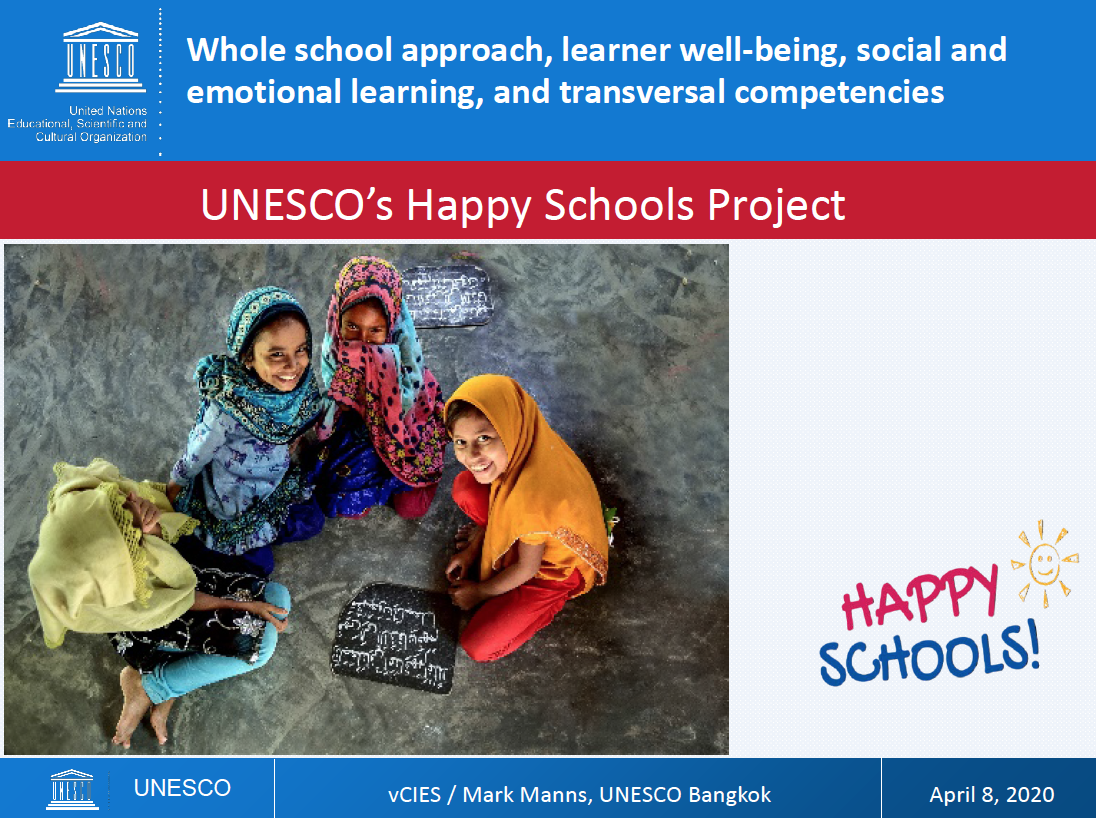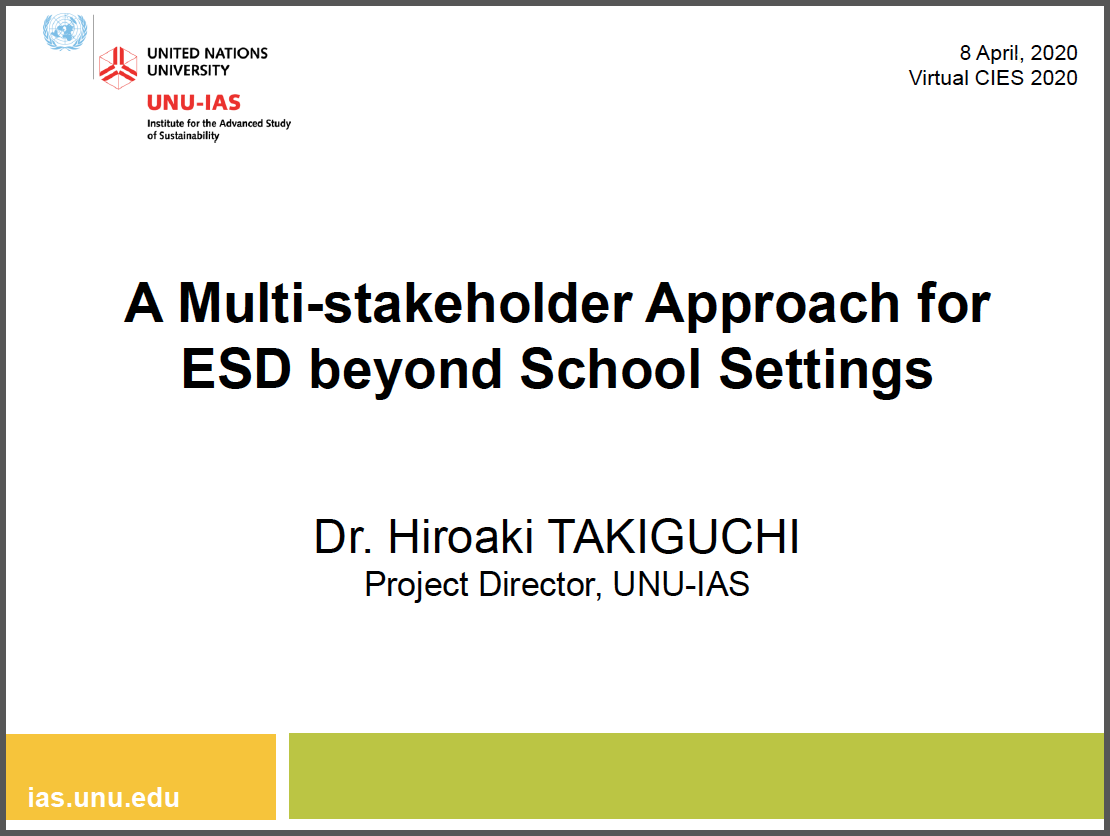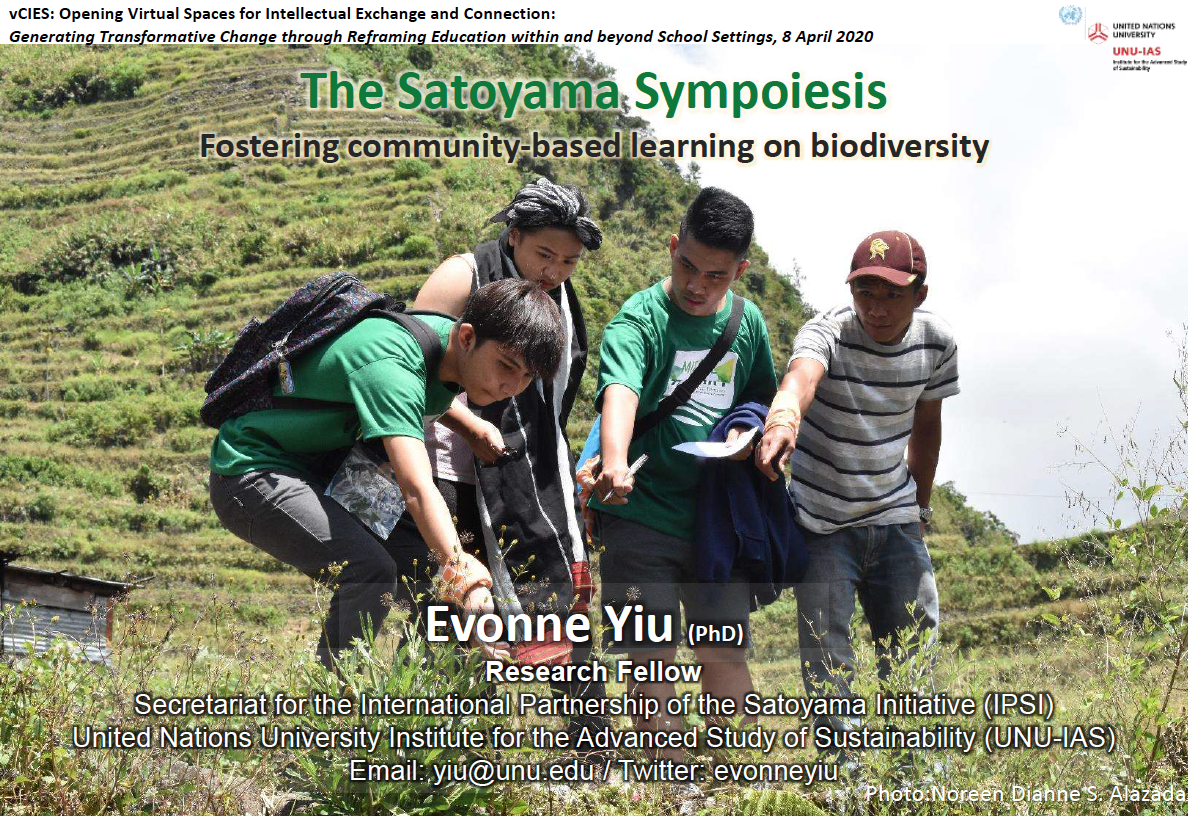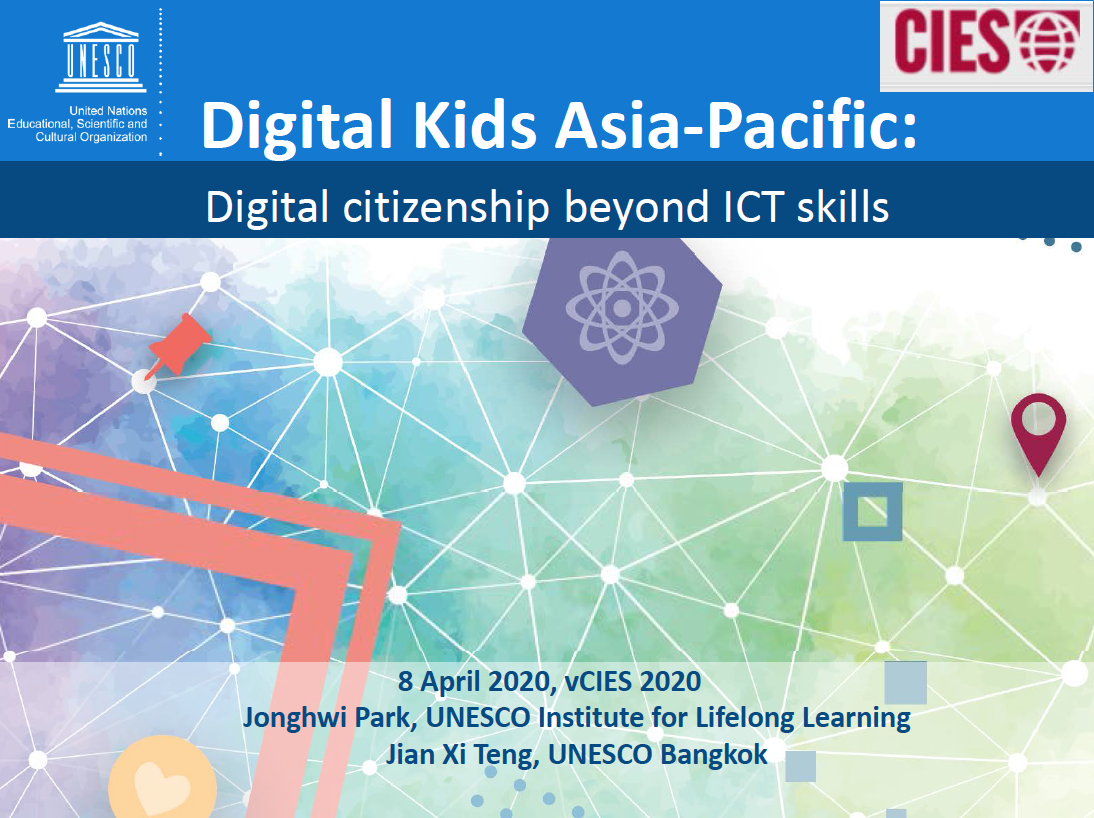CIES 2020 Panel Session Features RCE's Role in Implementing ESD
On 8 April, 2020, an online panel session was held as part of the Comparative and International Education Society's (CIES) 2020 virtual conference. Jointly organised by UNU-IAS, UNESCO, and the UNESCO Institute for Lifelong Learning (UIL), the session discussed the topic “Generating transformative change through reframing education within and beyond school settings”. Close to 100 participants attended online to listen to four presentations, including one on multi-stakeholder approaches to ESD, which presented how RCEs can be a mechanism for implementing ESD.
The focus of the entire session was to explore education’s ability as an efficient mechanism to generate transformative changes, by looking at current and potential education activities both within and beyond school settings, multi-stakeholder approaches, community-based learning, and the opportunities in tech-based learning.
In the presentation on ESD, Dr. Hiroaki Takiguchi (Project Director, ESD Project, UNU-IAS) explained the multi-stakeholder approach of RCEs, highlighted through a number of case studies which demonstrated the diversity of projects the network has an impact on, from teacher training, to mobilising youth, to technology-based virtual learning experiences.
Other presentations in the session included: UNESCO’s Happy Schools project, its focus on transversal competencies, and why wellbeing matters to learning; Digital Kids Asia-Pacific (presented by UIL and UNESCO), which outlined a framework comprising of five digital citizenship domains, as well as findings from research conducted on digital kids in the Asia-Pacific region; and the International Satoyama Initiative’s research, fostering community-based learning and action on biodiversity.
The four unique presentations all demonstrated the power of education as an agent for transformation, as well as the importance of shifting mindsets in regards to current systems of education, and the concept of learning.
UNU-IAS Director Professor Shinobu Yamaguchi chaired the session and Ms. Maki Hayashikawa, Unit Chief of Inclusive Quality Education, UNESCO Bangkok served as a discussant. Providing final thoughts at the close of the session, Ms. Hayashikawa noted the importance of learning to continue regardless of the situation, bringing about the need to be innovative and flexible in content, modalities, resources, as well as the need to involve multiple actors beyond the education sector, and linking to wider society.
Presentations:
 UNESCO's Happy Schools Project
UNESCO's Happy Schools Project
Presented by Mark Manns, UNESCO Bangkok
 A Multi-stakeholder Approach for ESD beyond School Settings
A Multi-stakeholder Approach for ESD beyond School Settings
Presented by Dr. Hiroaki Takiguchi, Project Director, UNU-IAS
 The Satoyama Sympoiesis - Fostering Community-based Learning on Biodiversity
The Satoyama Sympoiesis - Fostering Community-based Learning on Biodiversity
Presented by Dr. Evonne Yiu, Research Fellow, UNU-IAS
 Digital Kids Asia-Pacific: Digital Citizenship beyond ICT Skills
Digital Kids Asia-Pacific: Digital Citizenship beyond ICT Skills
Presented by Jonghwi Park, UNESCO Institute for Lifelong Learning, and Jian Xi Teng, UNESCO Bangkok


